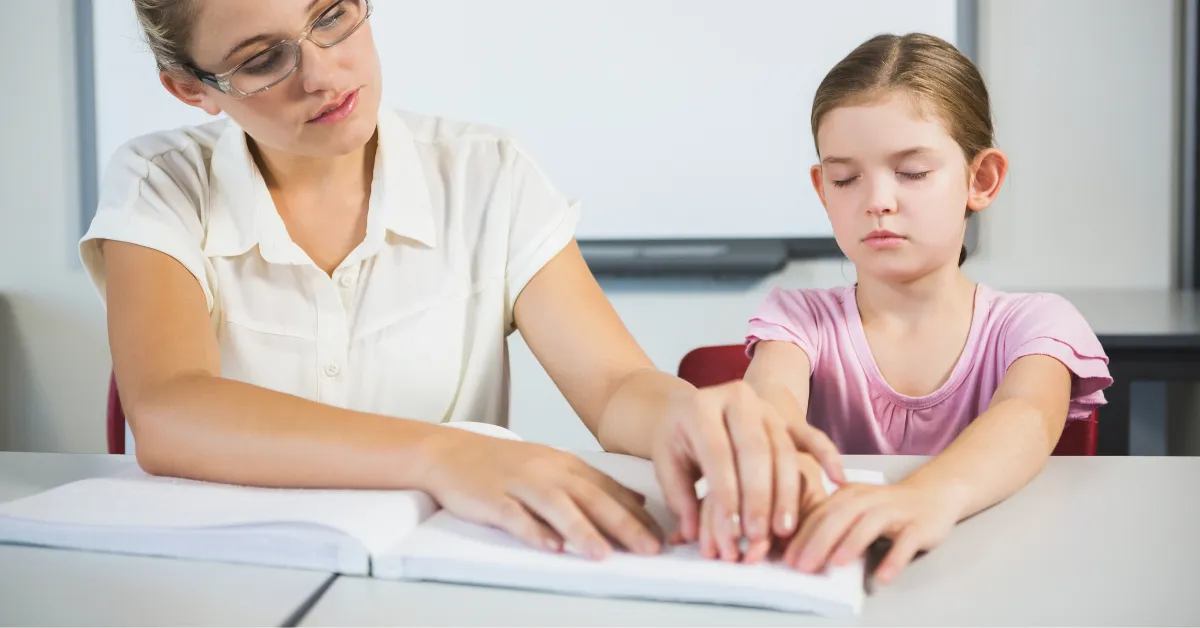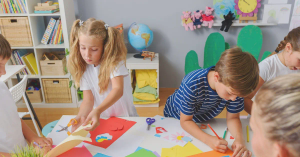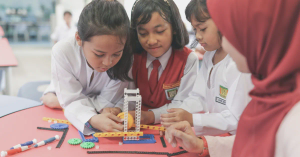Building confidence in blind students requires understanding, patience, and a bit of creativity. As parents, teachers, and friends, we all play a role in helping these incredible kids feel empowered and confident in their abilities. Let’s dive into some practical ways to support confidence-building for blind kids in a way that feels natural and engaging.
Understanding the Challenges
Before we jump into solutions, it’s important to recognize what blind students might be facing. They often deal with:
- Social Isolation: It can be tough for these kids to connect with their peers, especially during group activities or social events. This can lead to feelings of lonelinesgs.
- Academic Pressure: Many such students worry about keeping up with their classmates. They might feel anxious about participating in discussions or accessing materials.
- Navigating Spaces: Schools can be overwhelming environments. Getting around can be a challenge, which sometimes makes them feel vulnerable.
- Stereotypes and Misunderstandings: Sadly, misconceptions about blindness can lead to low expectations from others, which can really impact a child’s self-esteem.
Recognizing these challenges is the first step toward helping build confidence.
Strategies for Building Confidence
Foster Independence
Encouraging independence is key! Here are some simple ways to help:
- Teach Life Skills: Involve these students in everyday tasks like cooking or organizing their school supplies. This not only builds skills but also gives them a sense of accomplishment.
- Encourage Choices: Let them make decisions—whether it’s picking out their clothes or choosing what to read. This helps them feel more in control of their lives.
Create an Inclusive Environment
An inclusive classroom can make all the difference. Here’s how we can contribute:
- Educate Peers: Organize fun workshops or activities that teach classmates about blindness. When everyone understands each other better, friendships naturally blossom.
- Adapt Learning Materials: Ensure that materials are accessible—think Braille books, audiobooks, or digital formats that work with screen readers. This makes learning smoother and less stressful.
- Buddy System: Pair blind students with sighted friends who can help them navigate school activities. This not only aids mobility but also fosters social connections.
For more detailed strategies on adapting classroom materials specifically for blind students, check out our article on Adapting Classroom Materials for Blind Students: Effective Strategies for Inclusion.
Encourage Extracurricular Activities
Extracurriculars are fantastic for building confidence! Here’s how to get kids involved:
- Explore Options Together: Help them find clubs or sports that interest them—music, drama, or adapted sports can be great choices!
- Celebrate Participation: Whether they perform on stage or just show up for practice, celebrate their involvement! Acknowledging their efforts boosts self-esteem and encourages them to keep going.
Provide Emotional Support
Emotional well-being is crucial for confidence-building for blind kids. Here are some ways to provide support:
- Open Conversations: Create a safe space where they can talk about their feelings and experiences related to blindness. Listening without judgment helps them feel validated.
- Seek Professional Help if Needed: If a child seems particularly anxious or struggles with self-esteem, don’t hesitate to reach out to a counselor who specializes in working with children with disabilities.
For deeper insights into the emotional needs of blind students and how we can support their emotional well-being, refer to our article Understanding the Emotional Needs of Blind Students: Supporting Their Emotional Well-being. It offers valuable advice on recognizing and addressing their emotional challenges.
Connect with Role Models
Having role models can be incredibly inspiring! Here’s how to facilitate mentorship:
- Introduce Role Models: Connect students with successful individuals who are blind or visually impaired. Hearing their stories can motivate kids and show them what’s possible.
- Peer Mentorship Programs: Set up programs where older blind students mentor younger ones. They can share tips and strategies that have worked for them, creating a supportive community.
Teaching Tips for Educators
Teachers play a pivotal role in fostering confidence among blind students. For practical teaching strategies that make learning easier for these students, check out the article on Teaching Tips for Blind Students: How Teachers Can Make Learning Easier. It provides actionable tips on adapting teaching methods and materials effectively.
Conclusion
Building confidence in blind students at school is all about teamwork and understanding. By fostering independence, creating inclusive environments, encouraging participation in activities, providing emotional support, and connecting with role models, we can help these amazing kids shine!
Confidence-building for blind kids isn’t just about overcoming obstacles but celebrating their unique strengths and encouraging them to embrace who they are. Together, let’s create an environment where every child feels valued and empowered to reach for the stars! After all, every child deserves the chance to thrive and shine brightly!







